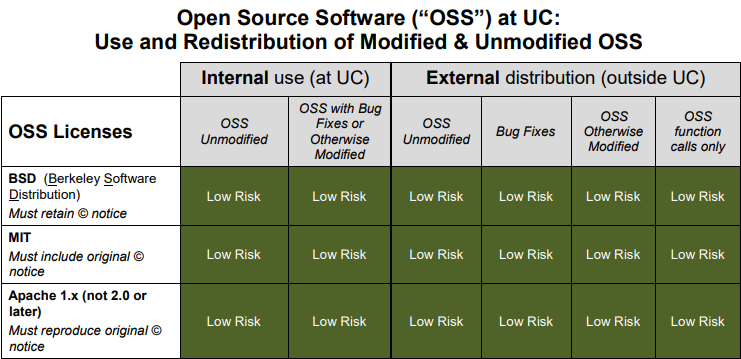By Robert Smith. Many University of California staff, faculty, and students participate in the diverse community of users, developers, and contributors who create and collaborate on open source software (OSS) projects. Indeed, the University of California broadly supports the use and creation of OSS.
UC realizes substantial benefits and savings by using OSS. And by supporting contributions to OSS projects, the university can increase its influence within OSS communities.
OSS tools are regularly developed and distributed based on OSS licenses, and members of the UC community may download applications that have OSS licenses or may release projects under OSS licenses.
A license is a legal agreement and it’s important to pick the right one – both for using and for releasing OSS. Yet choosing the best license can be a challenge. There are many types of licenses with varying terms and conditions. UC community members have asked for clarification and guidance about which one is the best and who they can talk to if they have questions.
To that end, in 2017 a UC systemwide workgroup convened to address these issues. It identified five types of licenses that can be used with low risk. These five types are listed in an OSS license chart, along with two types that the workgroup identified as high risk to the university and that are not recommended for use.

The workgroup also created and posted various other UC open source software resources. These include the OSS license chart and companion guide to help UC community members select the right license, as well as a Guide to Managing Open Source Software at UC, and a list of OSS contacts at each location who can provide more guidance and information.
UC personnel interested in connecting with the UC OSS community are welcome to join the conversation on UC Tech Slack at # open-source.

Robert Smith is systemwide IT policy director at the University of California Office of the President.


Thanks to you, Robert, and the working group for this informative article. I get asked regularly which license to use, as well as stumble across projects that have adopted a less optimal OSS license. Having your summary and explanation to link to, is a tremendous help!